Introduction
In industrial operations, the transportation and handling of bulk materials are crucial for the smooth functioning of various sectors such as construction, agriculture, mining, and manufacturing. One of the key vehicles designed to handle these materials efficiently is the dry bulk tank truck. These specialized trucks are specifically designed to transport and deliver dry bulk materials in large quantities. In this article, we will explore the advantages of using a dry bulk tank truck in industrial operations.
- Versatility and Flexibility
Dry bulk tank trucks are highly versatile and can transport a wide range of materials, including cement, flour, sand, grains, chemicals, plastics, and various other powders and granular substances. The ability to handle multiple types of dry bulk materials makes these trucks a valuable asset in different industrial sectors. Moreover, these trucks are designed with customizable features such as compartmentalized tanks, pneumatic discharge systems, and various loading and unloading options, enabling them to adapt to specific material requirements.
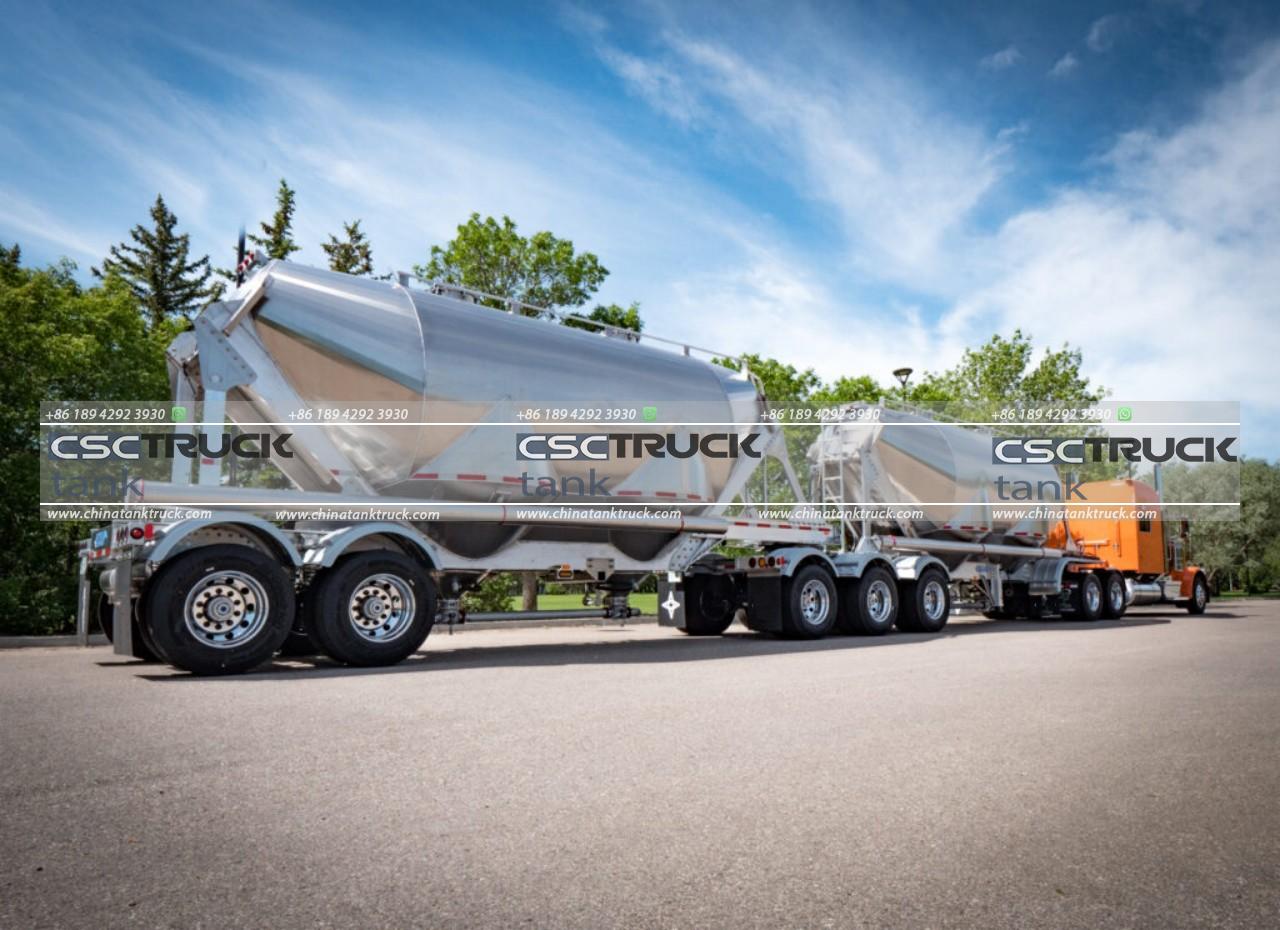
- Efficient Transportation
Efficiency is a key advantage of dry bulk tank trucks. These vehicles are built to transport large volumes of materials, allowing industries to move substantial quantities in a single trip. The tanks of dry bulk tank trucks can hold a considerable payload, typically measured in cubic feet or tons. This high carrying capacity minimizes the number of trips required for material transportation, reducing fuel consumption and transportation costs.
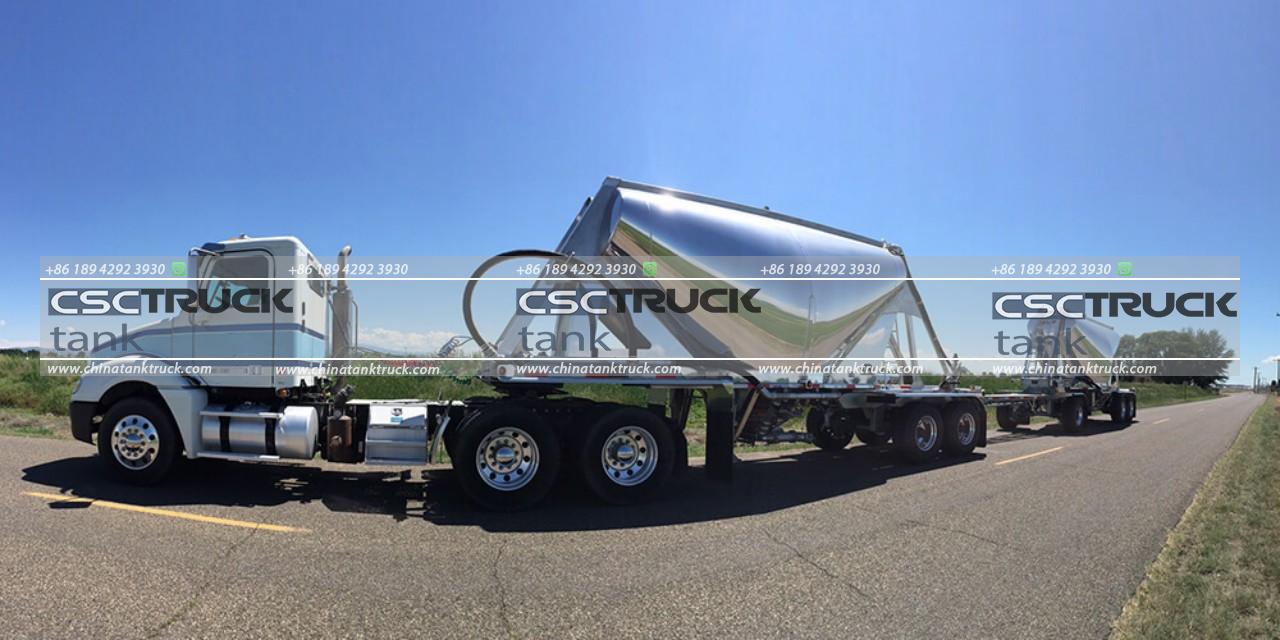
- Time-Saving
In industrial operations, time is of the essence. Dry bulk tank trucks offer significant time-saving benefits compared to other modes of transportation. With their pneumatic discharge systems and efficient unloading mechanisms, these trucks can rapidly offload the materials at the desired location. This eliminates the need for manual handling, saving valuable time and reducing labor requirements. Time-sensitive industries such as construction and manufacturing greatly benefit from the quick and efficient delivery of dry bulk materials.

- Enhanced Safety
Dry bulk tank trucks are designed with safety in mind. The tanks are constructed using sturdy materials that can withstand the pressure and stress associated with the transportation of bulk materials. These tanks are also equipped with safety features such as pressure relief valves, emergency shut-off systems, and grounding mechanisms to prevent accidents and ensure the safe transportation of materials.
Additionally, dry bulk tank trucks reduce the risk of material contamination and environmental hazards. The sealed compartments of these trucks protect the materials from external factors such as moisture, dust, and contamination during transit. This ensures that the materials arrive at their destination in their intended state, maintaining their quality and usability.
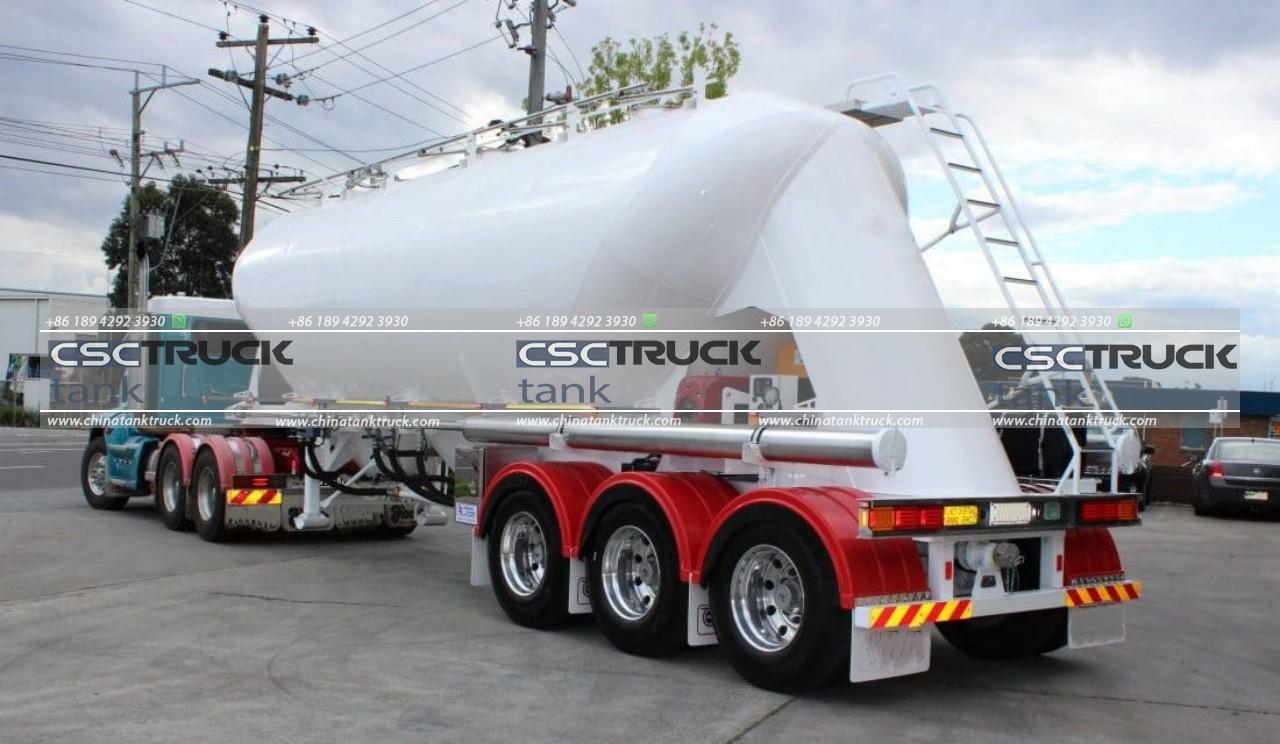
- Cost-Effectiveness
Dry bulk tank trucks offer a cost-effective solution for bulk material transportation. By optimizing the payload capacity and reducing the number of trips required, these trucks help minimize fuel consumption and transportation expenses. Moreover, the efficient unloading mechanisms of dry bulk tank trucks eliminate the need for additional equipment and manpower, further reducing operational costs. These cost-saving benefits make dry bulk tank trucks an economically viable option for industries that rely on the regular transportation of bulk materials.
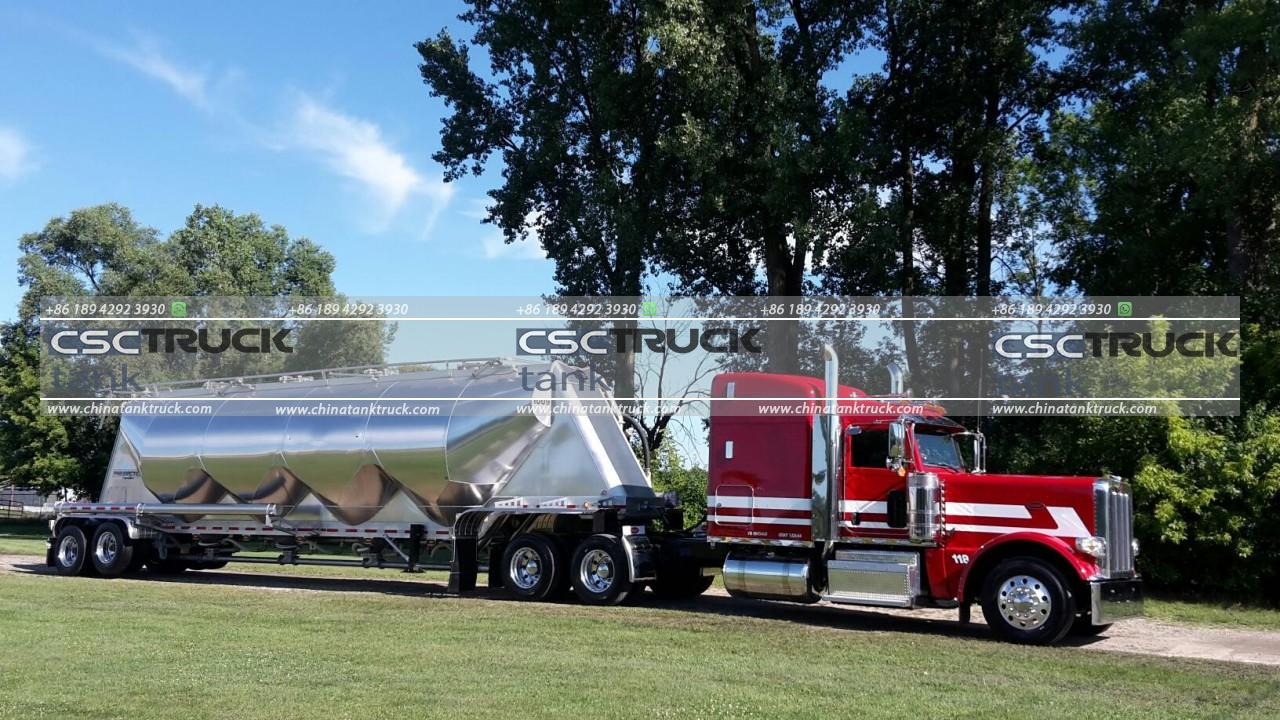
- Environmental Considerations
In today’s world, environmental sustainability is a pressing concern for industries. Dry bulk tank trucks contribute to eco-friendly practices in various ways. First, the efficient transportation of large volumes of materials in a single trip reduces carbon emissions associated with multiple trips. Additionally, the sealed compartments of the tanks prevent material spillage and dust emissions, ensuring minimal environmental impact. By choosing dry bulk tank trucks, industries can align their operations with sustainability goals while ensuring efficient material transportation.
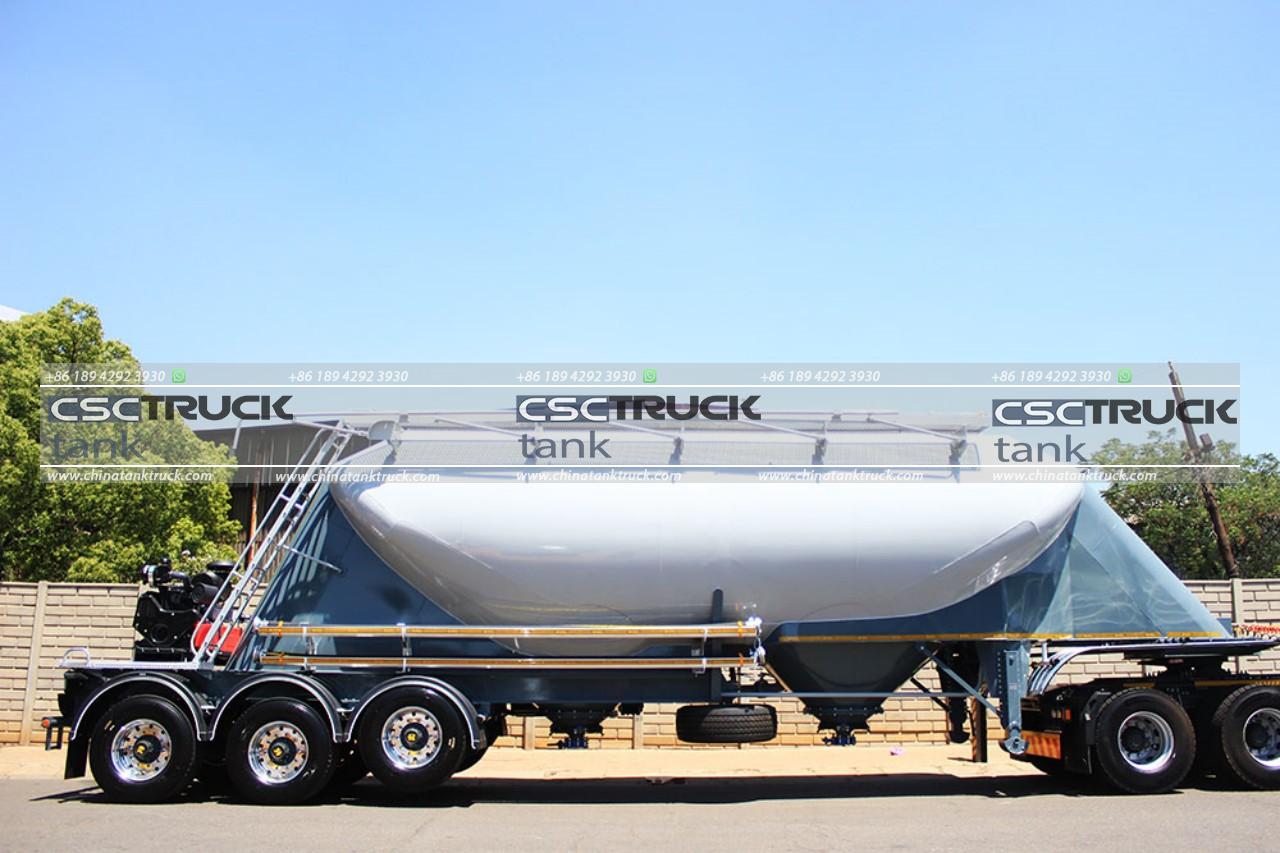
Conclusion
Dry bulk tank trucks are indispensable assets in industrial operations, offering numerous advantages for the transportation of bulk materials. Their versatility, efficiency, time-saving capabilities, enhanced safety features, cost-effectiveness, and environmental considerations make them an ideal choice for industries dealing with dry bulk materials. As industrial operations continue to evolve and demand efficient logistics, the use of dry bulk tank trucks will likely increase. These trucks provide a reliable and effective solution for the transportation of diverse dry bulk materials, contributing to streamlined operations and improved productivity.
In conclusion, the advantages of using a dry bulk tank truck in industrial operations are undeniable. From their versatility in handling different materials to their efficiency in transporting large volumes, these trucks offer significant benefits to industries across various sectors. The time-saving features, enhanced safety measures, and cost-effectiveness further enhance their value as a preferred choice for bulk material transportation. Moreover, their environmental considerations align with sustainability goals, making them an environmentally responsible option for industries.
As technology and innovation continue to advance, it is expected that dry bulk tank trucks will undergo further enhancements, such as improved loading and unloading mechanisms, enhanced safety features, and even integration with digital systems for better monitoring and control. These advancements will further optimize their performance, making them even more valuable in industrial operations.
In summary, the advantages of dry bulk tank trucks in industrial operations encompass efficiency, versatility, time-saving capabilities, safety, cost-effectiveness, and environmental considerations. These trucks play a vital role in meeting the logistical demands of transporting dry bulk materials, enabling industries to maintain smooth operations and meet production requirements. With their continued evolution and adoption, dry bulk tank trucks will continue to be a driving force in the efficient and sustainable movement of bulk materials in industrial settings.

